
Concentrated fruit juices are a healthy alternative to refined white sugar in baking recipes, and they also keep baked goods moist for a longer period of time. Derived from fresh fruits, juices are simmered down to become a thick substance with a higher concentration of sugar than regular juice. Often, concentrates are pasteurized to increase their shelf life and may contain additives to enhance flavor or sweetness. Found in the supermarket frozen food aisle, common fruit concentrates include apple, orange and grape juice.
Benefits
Use natural fruit concentrates to replace refined sugar when you want to avoid processed foods. Natural sugars, such as those found in the juice concentrate, have higher amounts of nutrients and release less rapidly into the bloodstream, unlike refined sugar. Specific juices also have medicinal benefits. Prune concentrate, for example, benefits the digestive system. In addition, fruit juices can produce a darker coloring in crusts, a less-crumbly texture and more moistness than products baked with white sugar.
Other Uses
Use fruit concentrate in any recipe that has sugar as an ingredient, such as chutney, ketchup or even pasta sauce. Use concentrates in place of simple syrup in mixed drinks or lemonade. Drizzle a concentrate over foods, such as pancakes or oatmeal, instead of sugar or syrup.
Substituting
Substitute two parts fruit concentrate for every three parts of sugar called for in a recipe. For example, if 1 cup of sugar is called for, use 2/3 of a cup of concentrate instead. To make up for the increased moisture of a concentrate, reduce another liquid in the recipe. For example, if using 2/3 cup of fruit concentrate to replace sugar, reduce the milk or egg whites by 3 tablespoons, according to "Healthy and Delicious: 400 Professional Recipes."
Alternatives
Use a natural alternative -- such as honey or agave nectar -- if fruit concentrates are not available. Substitute these alternatives in the same amounts as a fruit concentrate. If using the concentrate as an alternative to sugar, substitute one part agave or honey for every two parts of sugar, and reduce the liquids in a recipe by one-quarter.
Related Articles

How to Cook Down Apple Juice to Make ...
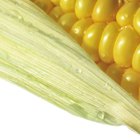
How to Substitute Light Corn Syrup in a ...

The Disadvantages of Saccharin
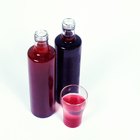
How to Make Sweet Syrup With Fruit Juice

What Is Agave Syrup?

How to Make a Fruit Reduction

Substitute for Framboise Liqueur
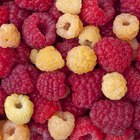
How to Freeze Raspberries

Best Fruit Juices to Cleanse the Colon
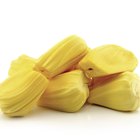
How to Make a Jackfruit Shake With Milk
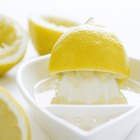
How to Make Lemonade by Boiling the ...

Where to Buy Pomegranate Juice

Substitute for Sorghum in Gingerbread
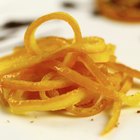
How to Substitute Orange Extract for ...

How to Cook Strawberries

How to Bake With Erythritol
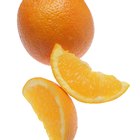
How to make Orange Extract
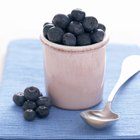
How to Make a Healthy Pancake Syrup

What Is a Good Substitute for ...

How to Glaze a Fruitcake
References
- Wax Orchards: Recipes
- California Dried Plums: Using Prune Juice Concentrate in Whole Wheat Bread and Other Bakery Products; Scott Sanders
- Fine Cooking: Orange Juice Concentrate
- Annies: Alternative Sweeteners
- British Soft Drinks: Fruit Juice
- Michigan State University: Fruit versus sugar, a sweet benefit
- Healthy and Delicious: 400 Professional Recipes; Sandra Kapoor
Writer Bio
Based in Kingston, Canada, Samantha Lowe has been writing for publication since 2006. She has written articles for the "Mars' Hill" newspaper and copy for various design projects. Her design and copy for the "Mars' Hill" won the Associated Collegiate Press Pacemaker award in 2008. Lowe holds an Honors BA from Trinity Western University, and a MSc in Occupational Therapy from Queen's University where she is currently doing her PhD.
Photo Credits
MW/Digital Vision/Getty Images